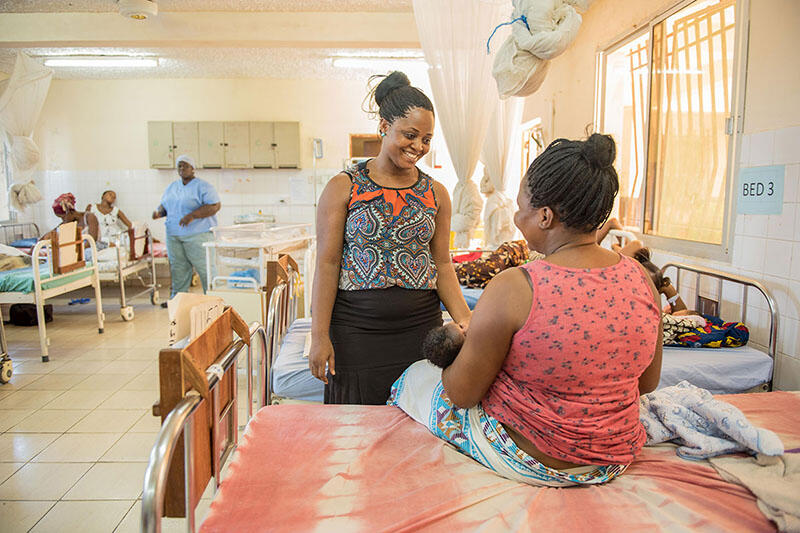The Ebola epidemic was devastating for the already fragile health-care system in Sierra Leone. Ebola was responsible for the deaths of over 200 health workers, including 56 midwives. © Olivia Acland, United Nations
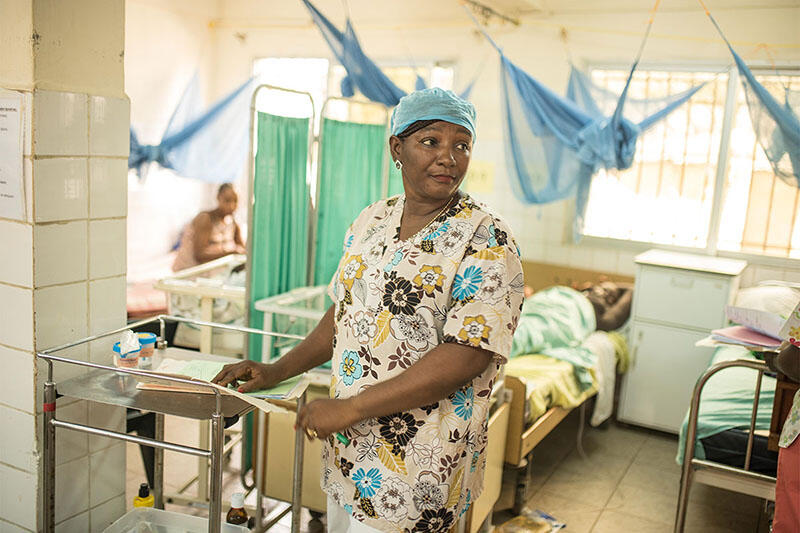
Before the outbreak, Sierra Leone had one of the highest maternal and infant death rates in the world, coupled with a shortage of skilled midwives and health workers. © Olivia Acland, United Nations
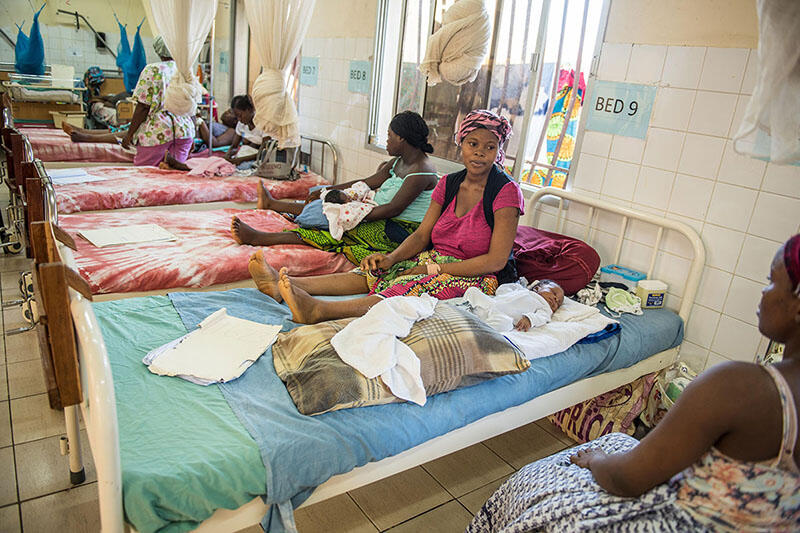
The Ebola crisis also left girls extremely vulnerable to pregnancy, not only because access to family planning was limited but also due to the breakdown of social protection systems. A new mother at Aberdeen Women's Centre. © Olivia Acland, United Nations
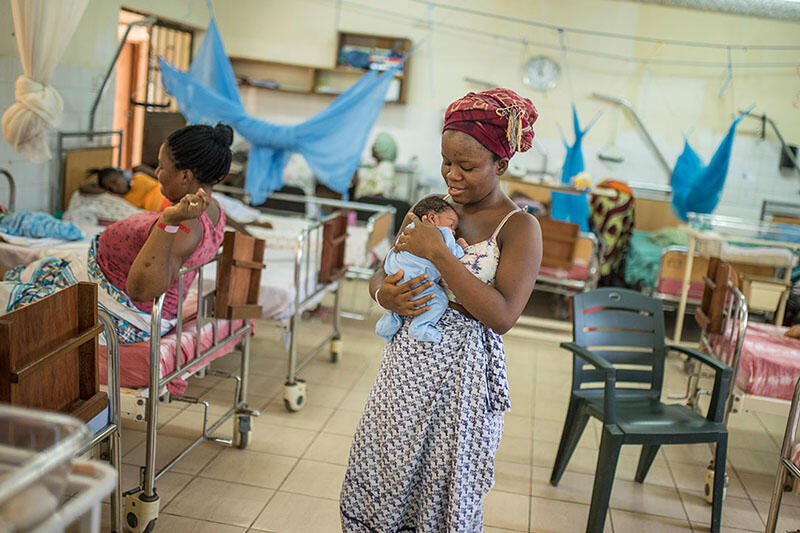
An estimated 18,000 girls became pregnant during the Ebola crisis; girls who are visibly pregnant are forced to drop out of school. Newborns at Aberdeen. © Olivia Acland, United Nations
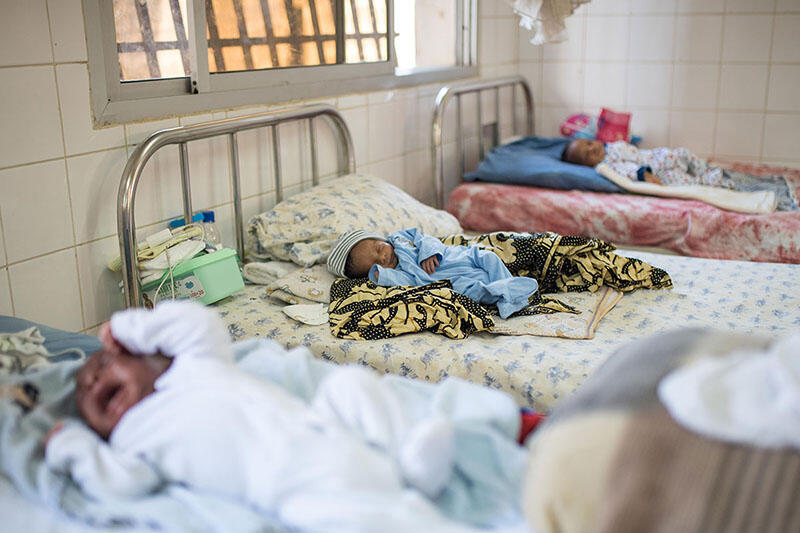
UNFPA is working to restore access to reproductive health care and put girls back in school. Midwife Musu Turay with mothers and newborns. © Olivia Acland, United Nations
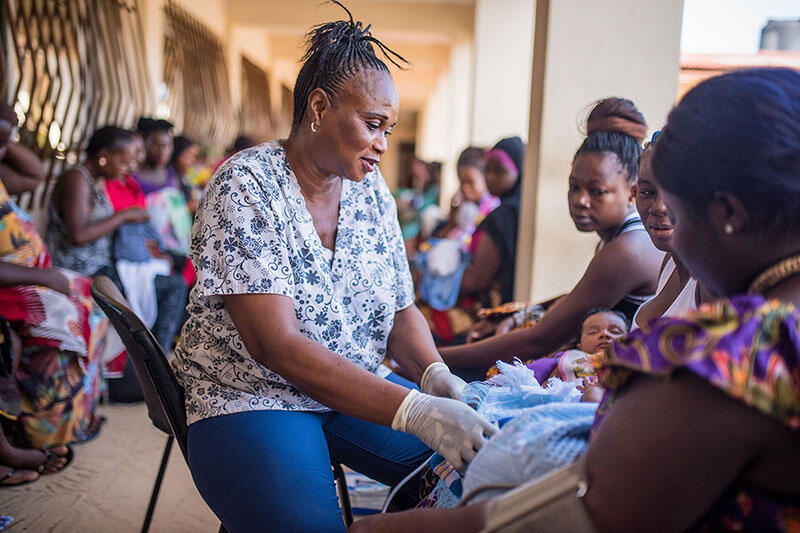
In addition to supporting women's health facilities, UNFPA is also supporting two midwifery schools, which will help close critical gaps in reproductive care. © Olivia Acland, United Nations
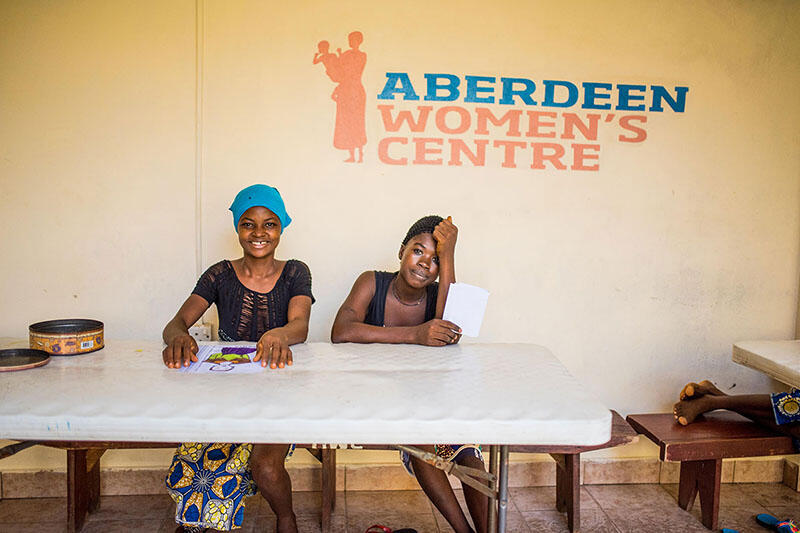
At the National Midwifery School, future midwives learn the skills necessary to provide a full range of services, from antenatal care to safe deliveries, for pregnant women. © Olivia Acland, United Nations
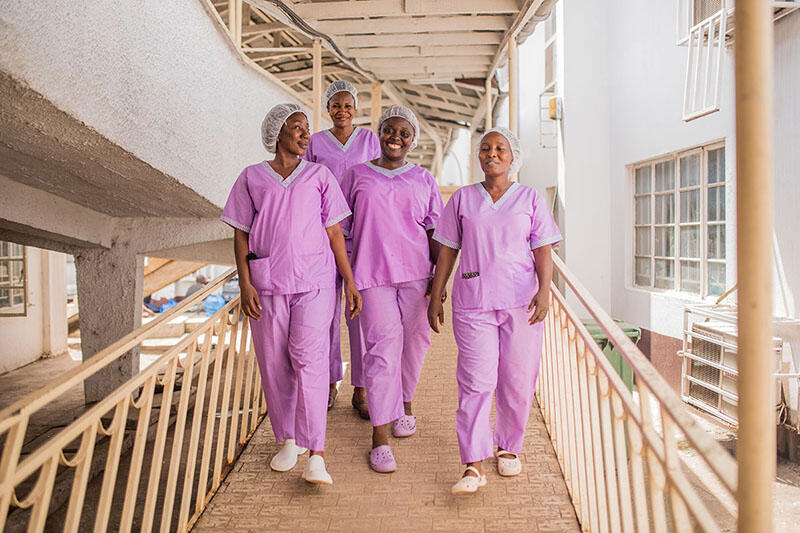
Midwifery students will also learn to provide family planning counselling, and diagnosis and treatment of sexually transmitted infections. © Olivia Acland, United Nations
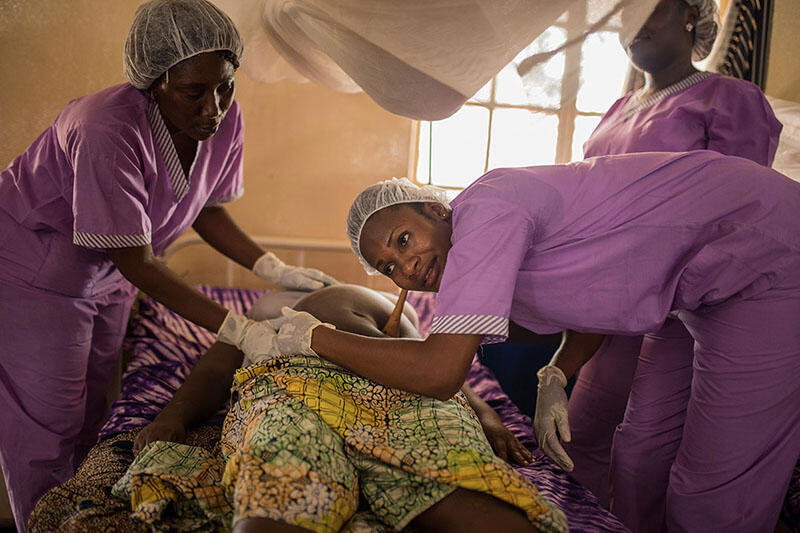
In the year since the outbreak ended, a rigorous midwifery curriculum has been adopted for a new generation of midwives, and more than 11,000 girls have returned to school. © Olivia Acland, United Nations
